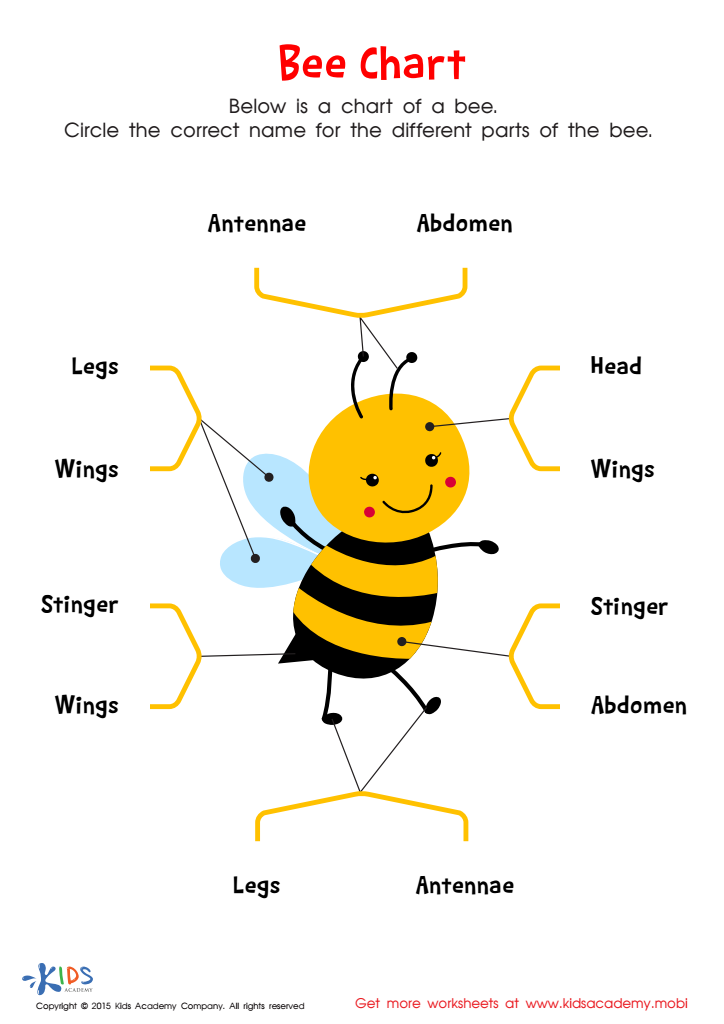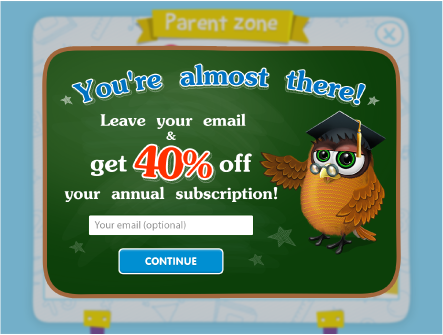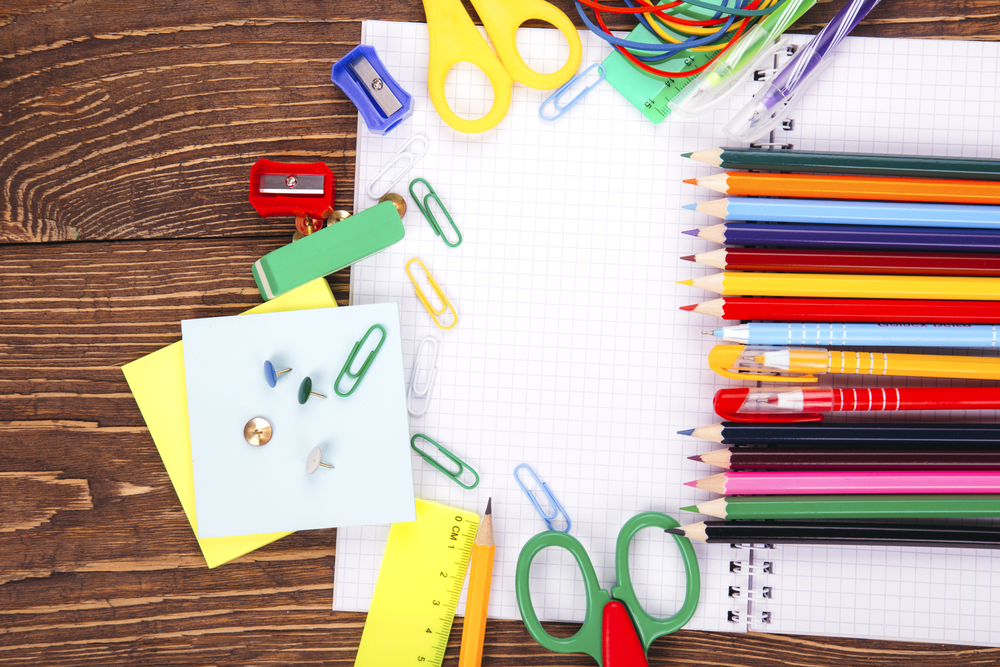Identification skills Worksheets for 6-Year-Olds
7 filtered results
-
From - To
Unlock your child's potential with our expertly designed Identification Skills Worksheets for 6-Year-Olds! Perfect for early learners, these worksheets engage children in fun, interactive activities that build essential identification skills, including recognizing letters, numbers, shapes, and colors. Each worksheet promotes critical thinking and enhances cognitive development while providing a hands-on learning experience. Tailored to suit young minds, the activities stimulate curiosity and encourage exploration. Parents and educators can easily download and print these resources, making them a convenient addition to home or classroom learning. Empower your child with the fundamentals they need for a successful educational journey with our identification skills worksheets!
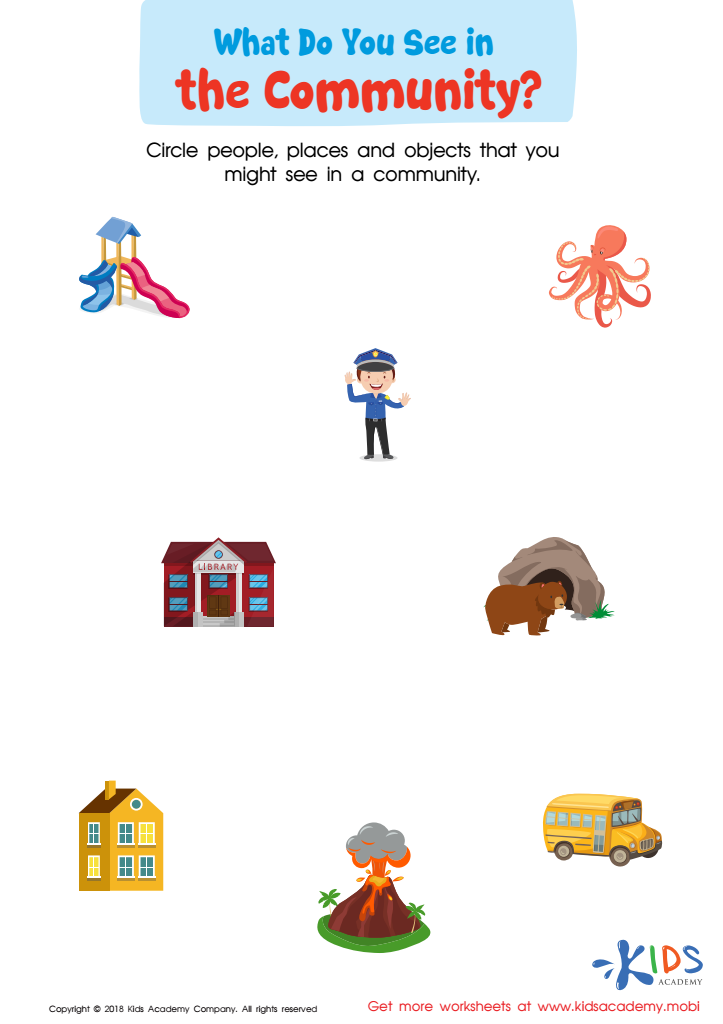

What Do You See in the Community Worksheet
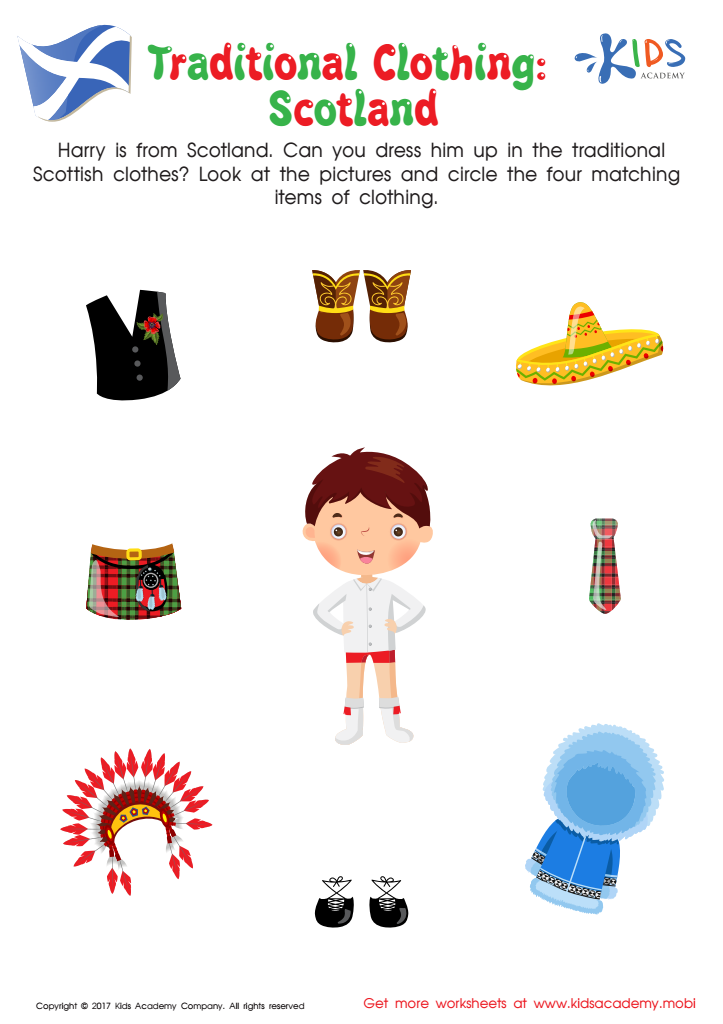

Traditional Clothing in Scotland Worksheet
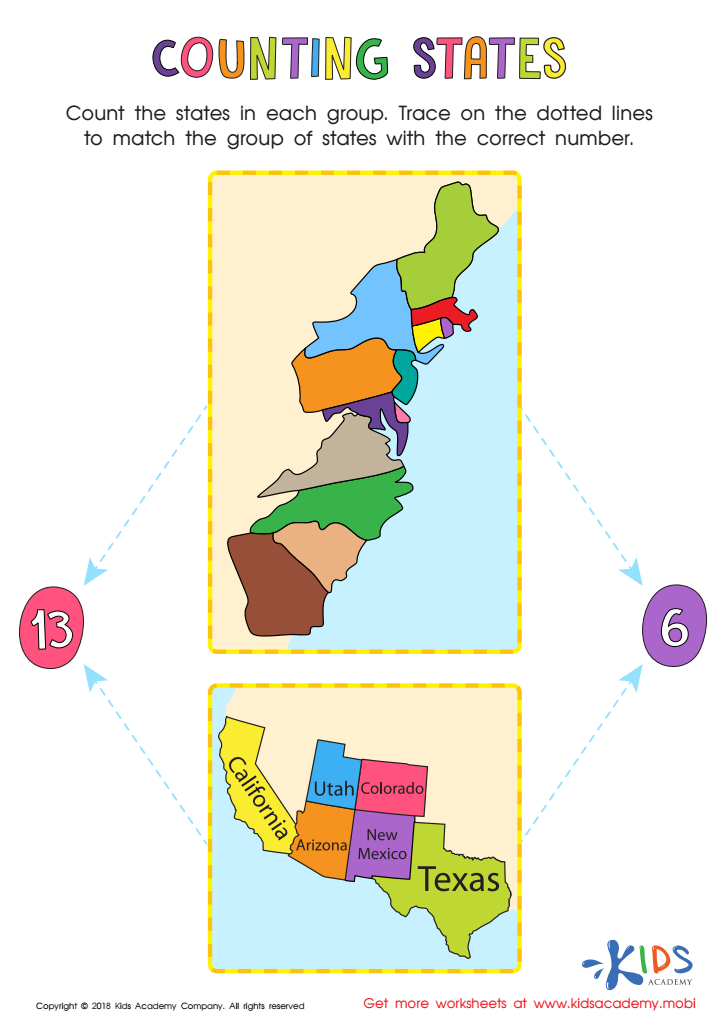

Counting States Worksheet
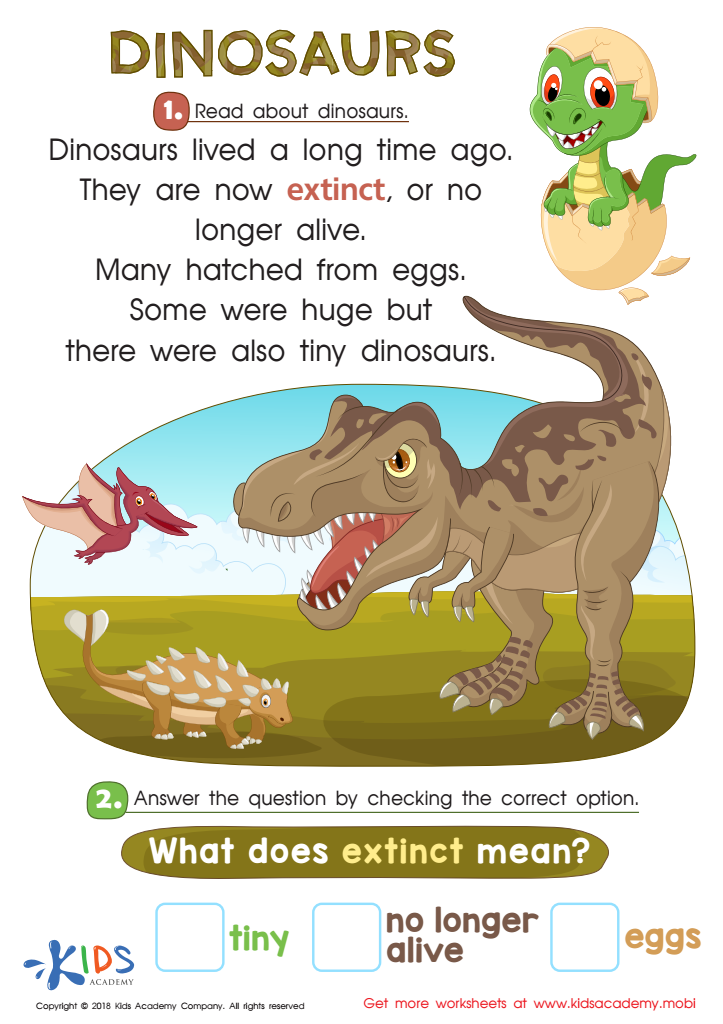

Dinosaurs Worksheet
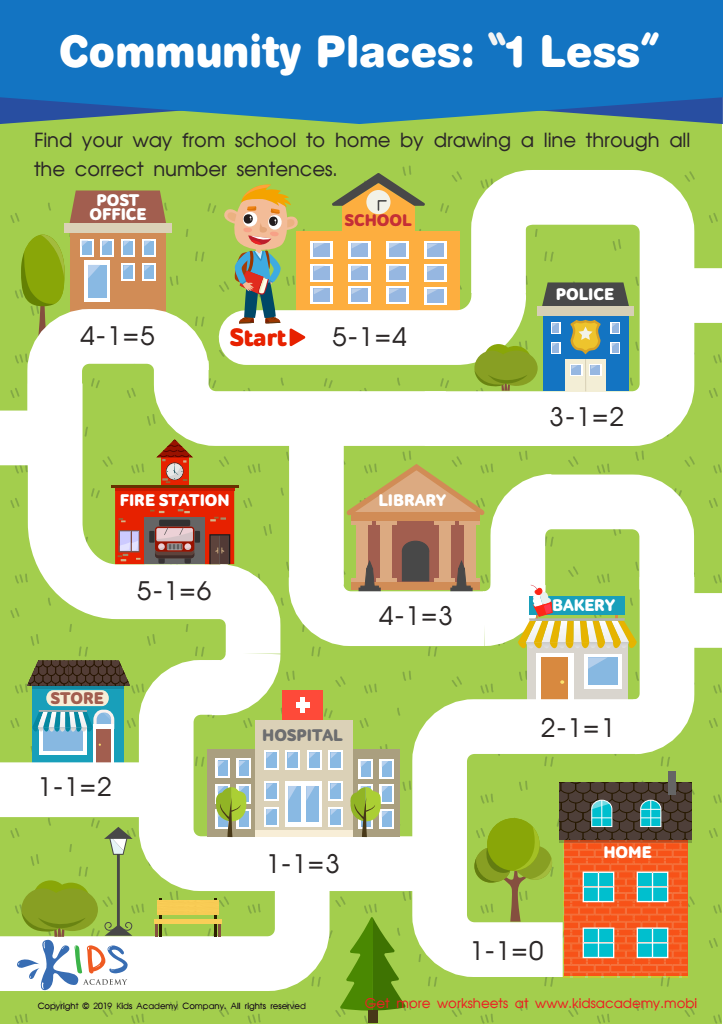

Community Places: 1 Less Worksheet
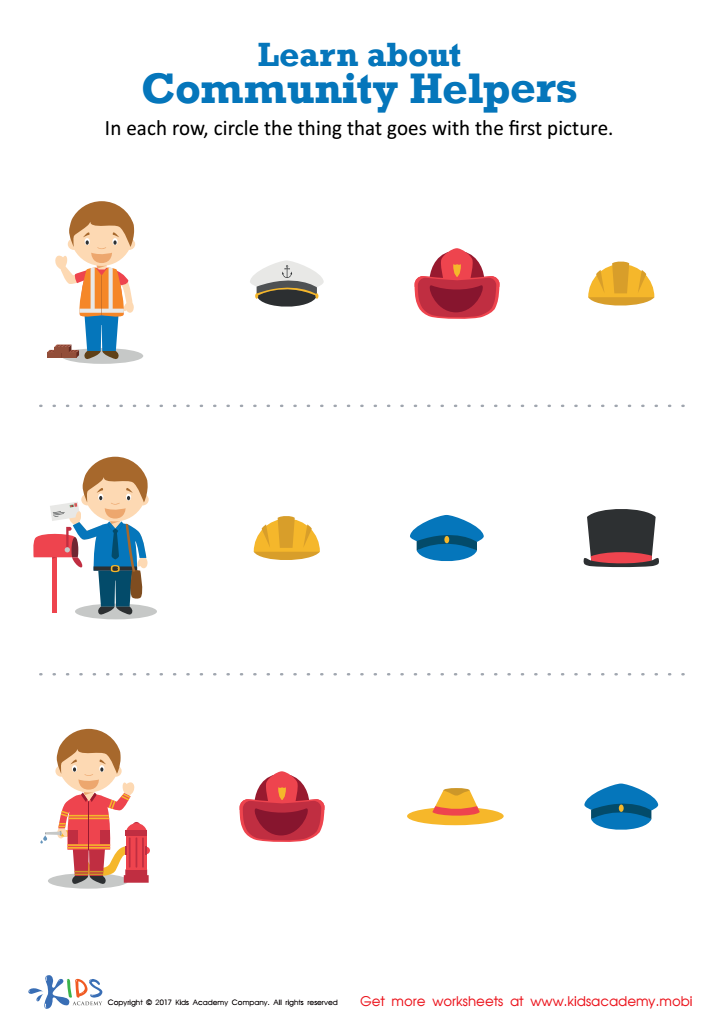

Learn about Community Helpers Printable
Identification skills are crucial for 6-year-olds as they form the foundation for learning across various subjects. At this age, children are developing essential cognitive abilities, including observation, categorization, and reasoning. By honing their identification skills, children learn to recognize and label objects, letters, numbers, shapes, and even emotions, which is vital for language development and communication.
For parents and teachers, fostering these skills enhances a child's self-confidence as they become more adept at interacting with their environment. Identification skills also encourage curiosity, as children engage with the world around them, asking questions and seeking answers. This curiosity is critical for later academic success, laying the groundwork for critical thinking, problem-solving, and analytical skills.
Moreover, identification skills support social development; recognizing and interpreting social cues fosters healthier relationships with peers. When teachers and parents prioritize these skills through interactive activities and games, they create an enriching learning environment that nurtures a child’s emotional and intellectual growth. In summary, paying attention to identification skills equips children with essential tools for lifelong learning, making it a fundamental focus for parents and educators alike.
 Assign to My Students
Assign to My Students

